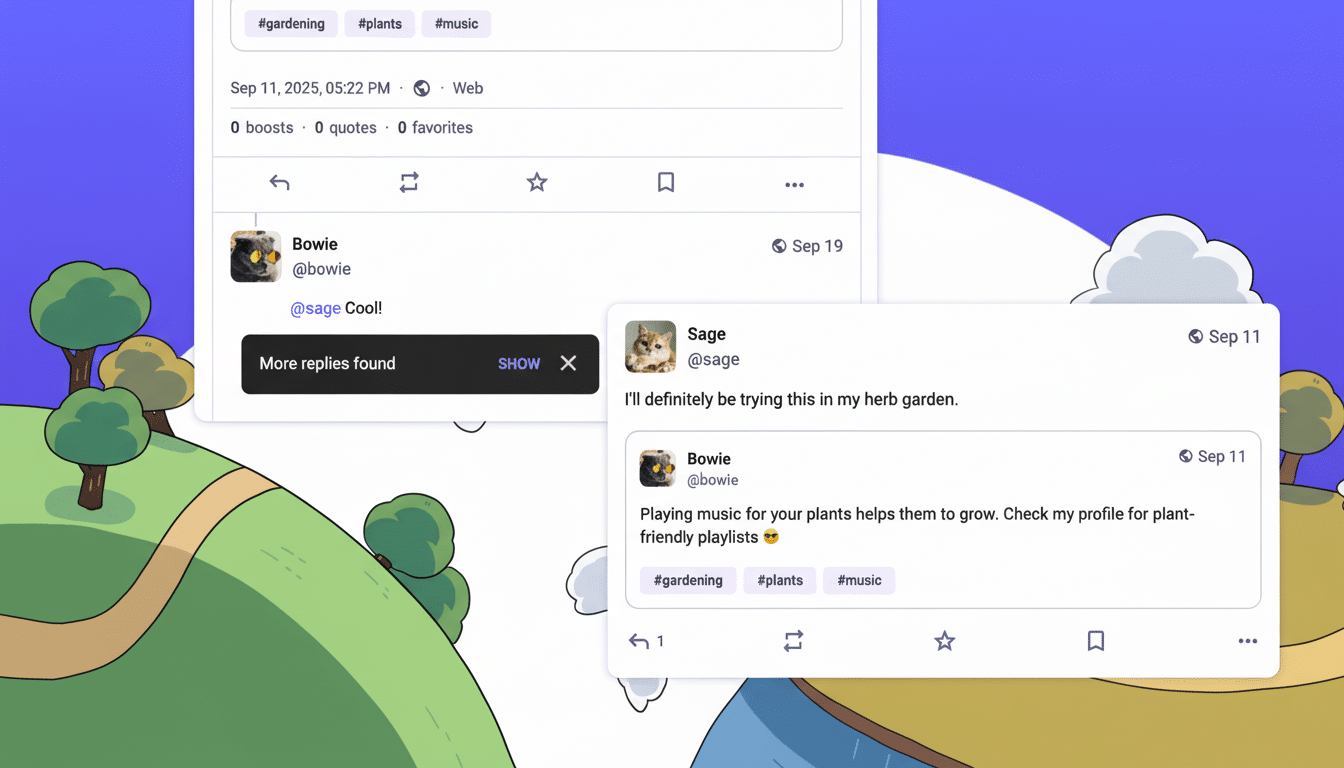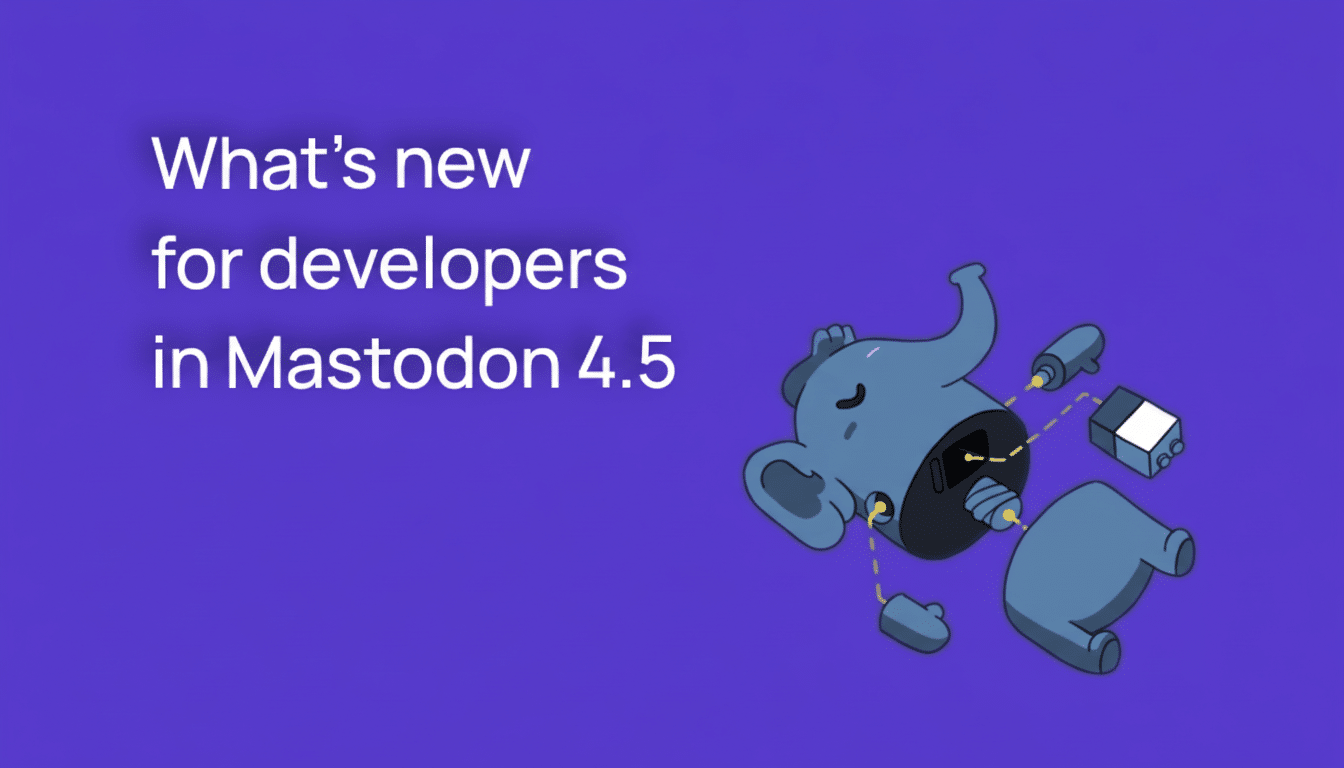Mastodon’s latest offering is an important one. With version 4.5, the decentralized social network is bringing Quote Posts to all server operators, offering a feature that many users see as table stakes for text-first platforms, with an eye toward some safety mechanisms tailored to the fediverse’s culture.
What’s Changing in Mastodon 4.5 Across the Federated Network
The update has opened Quote Posts network-wide, and it also changes how conversation travels between instances. It also adds native emoji rendering to the web interface and bridges some cracks that could make replies from older servers disappear. Combined, these tweaks are intended to make conversations more fluent without sacrificing the spirit that got people interested in Mastodon in the first place.
- What’s Changing in Mastodon 4.5 Across the Federated Network
- Safety-First Quoting Without the Dunk Culture
- Server Operator Controls and Expanded Admin Options
- Interoperability Across the Fediverse and ActivityPub
- Why This Is Important in the Context of the Open Social Web
- What’s Next on Users’ Viewing Schedule for Mastodon 4.5

And notably, this release introduces new things that go beyond the user-facing tooling. Admins now have even more granularity when it comes to feeds, moderation workflows, and global defaults, empowering local communities to customize norms whilst continuing to federate widely.
Safety-First Quoting Without the Dunk Culture
Mastodon’s approach to quoting works intentionally differently from the mechanisms that have fueled “dunk” behavior on other networks. Users can specify who is permitted to quote their posts — which includes everyone, only followers, or nobody at all. Those defaults can be adjusted by post, allowing people to have a wider-ranging conversation on one topic, and a tighter one on another.
Visibility controls add another layer. Quote Posts can be public, restricted to followers, or shared in a “quiet public” mode, which leaves them visible on profiles but removes them from search, trends, and public timelines. It’s a small gesture, but that signal is also significant in helping reduce pile-ons and context collapse.
There’s also a consent element. If your post is quoted, you receive a notification and can delete the original from that quote if you feel it has been taken out of context. Conventional protections — blocking an account, or flipping a privacy setting — are still options, but these could now also have clearer implications for quoting behavior.
Mastodon piloted Quote Posts on some of its larger flagship servers earlier this year, allowing communities to kick the tires before throwing open the gates network-wide. That patient approach seems to have influenced the feature’s defensive defaults as well as the idea of “quiet public,” which feels tailor-made for federated spaces.
Server Operator Controls and Expanded Admin Options
4.5 is also as much an administration and configurability release as it is a social one for admins. An instance can opt out of some feeds, make a local feed the default homepage to highlight voices in one’s community — and block individual users — which has clearer network-wide implications. The moderation interface now features richer context — link previews and whether there are any quotes, for example — so that it’s not a decision in isolation.

Under the hood, the release tidies up federation rough edges. Comments that previously didn’t show from servers still on 4.4 or older should now reliably appear, removing one of the primary pain points when communities are running different software versions.
Interoperability Across the Fediverse and ActivityPub
Mastodon is built on top of ActivityPub, the W3C-developed protocol that runs most of the open social web. Quote Posts will travel server-to-server as Mastodon’s variant, but will not look the same in every ActivityPub app. Some quotes will just end up as a regular blog post with a link. That’s what happens in a federated world, when software is written at different speeds and with different design opinions.
The practical takeaway for users is simple: quotes will work best between Mastodon servers on 4.5 and up. I’d expect other platforms to experience graceful degradation, meaning they can still see the conversation even if they’re not displaying it as a little box-quote dealie.
Why This Is Important in the Context of the Open Social Web
The fediverse has been growing continuously. FediDB monitors around 12 million accounts in total across ActivityPub services, about 8 million of those from Mastodon. Still, Mastodon’s monthly active users number in the hundreds of thousands, not the hundreds of millions. Threads, in contrast, says it has hundreds of millions of monthly users and a large daily active user base, though its ActivityPub integration is partial and it’s not fully counted in independent fediverse tallies.
In that light, it is less about chasing a trend and more about delivering the kind of news and information users come looking for while maintaining community standards. In mainstream platforms, quoting typically raises conversations and can start chains of replies. Mastodon’s approach is an attempt to harness that upside, while avoiding the worst dynamics of performative call-out.
What’s Next on Users’ Viewing Schedule for Mastodon 4.5
Quoting will become available for servers upon upgrade to 4.5, instance by instance. Expect admins to refine local policies, and cross-app support to grow as other ActivityPub projects adapt it. In the meantime, the new controls — who can quote, how widely quotes are seen, and being able to retract your post from a quote — put users in control of what their words do.
It’s a sensible move for an open network: put in a well-known feature, but design it with consent and context, as well as community mores, in mind. If adoption remains relatively seamless, 4.5 could be the time when quoting becomes a native, neighborly conversation pattern of the fediverse rather than an affecting habit from elsewhere.

